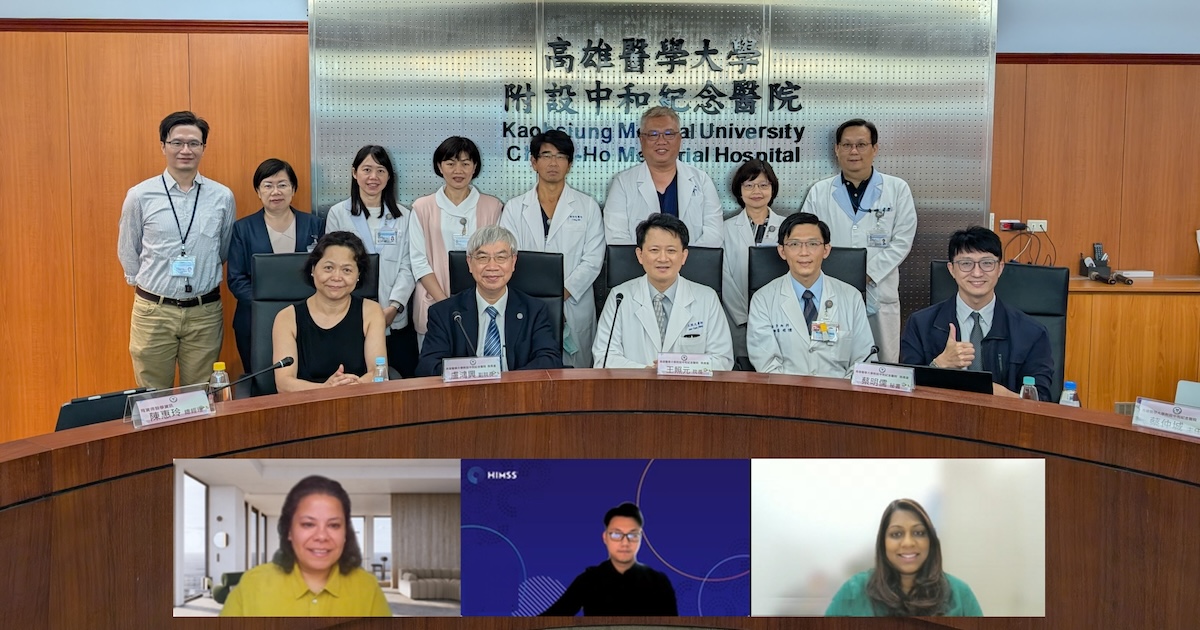
Doctors, nurses, and other clinical staff must be involved early on in the digital transformation process if it is to succeed.
Daniel Johnston, associate chief nursing informatics officer at Imprivata, has been supporting hospital and health system leadership to execute mobile digital health implementations effectively.
Johnston, who is also a practising nurse, had witnessed the early applications of handheld devices and predictive analytics when he previously took on lead roles at the United Kingdom’s National Health Service and Harvard University hospitals in the United States.
He spoke to Healthcare IT News about his work at Imprivata, how they are helping clinicians navigate digital technologies, and what it takes to run a successful implementation project.
Q. Daniel, can you talk about your organisation Imprivata and the work you do, please?
A. Imprivata offers access management solutions that enable simple and secure access through the strategic use of digital identity. With Imprivata, we can prioritise security while maintaining productivity. This is achieved by focusing on digital identity and ensuring that the right individuals have access to the right resources for the right reasons across all devices. What I particularly appreciate about Imprivata is our exclusive focus on digital identity and our collaboration with leading vendors to achieve this goal.
I’ve been a practising nurse for 25 years now. I began my career within the United Kingdom’s National Health Service, starting out in acute medicine, with the majority of my practice in emergency care and telemedicine. Throughout that period, I’ve taken on a variety of roles – clinical, operational and educational. I’ve also worked in research roles. It has all been patient-focused with a passion for service improvement.
I was fortunate to have practised in the United States, where I worked at a Harvard University Teaching Hospital ER, where I moved up into leadership and educational roles with a focus on methodologies around quality improvement, lean process design and co-design. At Harvard, we had access to a whole range of technologies, which we evaluated in the clinical setting. That led to working with predictive analytics, early hand-held devices which were very innovative at the time, population health tools, and decision support. The research goals were to validate these tools in the clinical space, looking at how they could be adopted and used to benefit patient care.
I was a recipient of a National Institute for Health and Care Research (NIHR) Fellowship, which focused on human factors in emergency care. More recently, I have been fortunate to become a Florence Nightingale global nurse scholar.
These varied experiences deeply inform my role at Imprivata as Associate CNIO, Director of Clinical Operations, and CSO, where I am fortunate to lead a team of clinicians who can partner with healthcare organisations to advocate, co-design and facilitate the delivery of clinical value when realising technology with clinicians to benefit patient care.
The involvement of clinicians at hospitals and Imprivata’s clinical teams supports effective deployment of Imprivata’s technologies to enable the use of identity and access management. The purpose is to ensure rapid, secure access to clinical data, with no need to compromise or choose between speed of access and security.
Q. In a recent HIMSS study on the EMR experience in Asia-Pacific, poor usability of systems frequently emerged as a major pain point for clinicians. Many respondents were frustrated by complex and non-intuitive interfaces, making navigation difficult and workflows inefficient. What has your experience been around these issues in your work with healthcare clients, and how do you mitigate them?
A. My career to date has included clinical, operational, educational and research roles that have always entailed health IT to be used, evaluated or an enabler of change. My first-hand experience facilitates my ability to quickly relate to the challenges clinicians have with adopting technology at the patient bedside in their healthcare organisations.
During my career, my overall experience of health IT (e.g. EMRs, decision support technology) has been largely poor. This may not necessarily be directly due to technology, but how it is configured and deployed with healthcare staff, which, on occasion, has hindered patient care.
Clinicians are generally not sufficiently engaged early in the process of designing and deploying health IT, when in reality, an effective deployment starts with engaging clinicians during procurement. Clinician inclusion in procurement enables problems to be identified and clinical success to be defined at the outset.
Q. On that note, how do you think clinically focused principles enable successful digital health transformation? Do you have a client success story that you can share with us?
A. The inclusion of clinicians' frontline insights in the procurement, discovery, design, testing and clinical change management using health IT is crucial to consistently deploy safely and achieve good adoption of health IT.
A good example is the Victorian Heart Hospital, Australia’s first dedicated cardiac hospital. They partnered with us to streamline access to applications on their Zebra TC52 mobile computers, doubling users’ time savings.
Q. What exciting innovations or initiatives can we expect from Imprivata in the near future?
A. Some new features and products coming out soon include passwordless technologies and patient ID. We are also working to facilitate the secure use of shared mobile devices to allow rapid access to patient data at the point of care.
_
Imprivata will be present at HIMSS25 APAC from 16-19 July in Kuala Lumpur, Malaysia. Catch us at Booth A11 and pre-schedule a personalised meeting with our experts.





